Archive
17 December 2020
Delft researchers chart the potential risks of 'free-floating DNA'

We don’t realize it, but loose strands of DNA end up in nature via our wastewater. As of yet, it is unclear how much this 'free-floating DNA' impacts environmental and public health. Researchers at Delft University of Technology (TU Delft) have now found a way to determine just how much potentially harmful DNA ends up in our wastewater. They have developed a method that can isolate such ‘free floating DNA’ from wastewater, which gives them the means to determine the extent of the problem. The results of their work will officially be printed in Water Research in February 2021, but have already been pre-published online.
16 December 2020
Platform Bio-Economie consolidates broad bioeconomy strategy by appointment of Chair of the Board
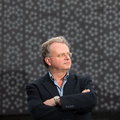
Platform Bio-Economie consolidates its strategic reorientation towards becoming the leading industry organisation targeting the development of a fully renewable and sustainable, CO2-neutral society in which product chains are as circular and biobased as possible. Luuk van der Wielen with over 30 years of mixed academic/industrial experience in developing bioeconomy technology, business and policies has been appointed to chair the board.
09 December 2020
ERC Consolidator grants for TU Delft researchers
The ERC has awarded a Consolidator Grant to Stan Brouns, Kristof Cools and Simon Gröblacher from TU Delft. With this support, they will be able to consolidate their teams and have farreaching impact. It was the first ERC Consolidator Grant application process that was conducted completely online.
04 December 2020
Professor Ronald Hanson appointed Distinguished Professor in Quantum Computing and Quantum Internet
Professor Ronald Hanson of the Faculty of Applied Sciences (AS) and the QuTech Institute has been appointed Distinguished Professor in Quantum Computing and Quantum Internet.
04 December 2020
In Memoriam: Prof.dr.ir. Herman van Bekkum (1932 – 2020)
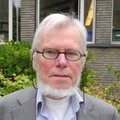
01 December 2020
Delft researchers develop blood oxygenation sensor for premature babies
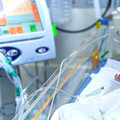
Doctors have to keep a close eye on babies that are born prematurely, and brain oxygenation is perhaps the most important thing to monitor. Up to 50 percent of premature babies suffer brain damage, leading to neurological problems. Researchers at Delft University of Technology have now developed a wireless sensor that monitors the health of the baby's brain in a simple, inexpensive and comfortable way for the child.
01 December 2020
Researchers peer deep inside tissue
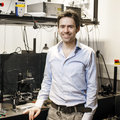
One of the challenges in optical imaging is imaging the inside of tissue in high resolution. Traditional methods allow us to look to a depth of approximately one millimetre. Researchers at Delft University of Technology have now developed a new method that can penetrate up to four times as deep: up to around four millimetres. The healthcare sector in particular may benefit from the new technique in the future.
28 November 2020
Graphene balloons to identify noble gases
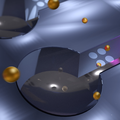
New research by scientists from Delft University of Technology and the University of Duisburg-Essen uses the motion of atomically thin graphene to identify noble gases. These gases are chemically passive and do not react with other materials, which makes it challenging to detect them. The findings are reported in the journal Nature Communications.
26 November 2020
From imaging to analysing: how Delmic’s new FAST-EM system is changing electron microscopy
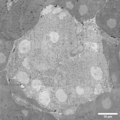
Delmic is launching an automated ultra-fast system, FAST-EM, which uses 64 electron beams. Reliable and extremely fast, FAST-EM is aimed at imaging biological samples without the need to constantly babysit the machine.
26 November 2020
Marie-Eve Aubin-Tam wins Waterman Award
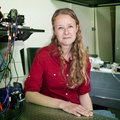
Researcher Marie-Eve Aubin-Tam of the Bionanoscience department has won this year's H.I. Waterman Sustainability Award. The head of the department of Bionanoscience, Marileen Dogterom, virtually presented the award to her during an online meeting on Thursday 26 November.